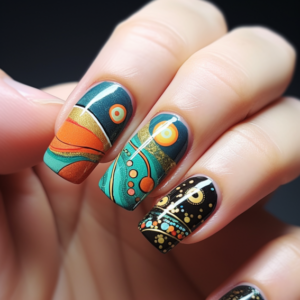The postpartum period is a time of immense change and adjustment for new mothers. One aspect that often presents challenges is the physical transformation of the body after childbirth. It’s important to understand and embrace these changes while maintaining a positive self-image and overall well-being. In this blog, I, a mother and early childhood educator, will provide guidance on how to cope with postpartum body changes and foster a healthy self-image.
1. Understanding Postpartum Body Changes
Before addressing how to cope with postpartum body changes, it’s essential to understand what to expect. Some common postpartum changes include:
- Weight Fluctuations: It’s normal to experience weight fluctuations postpartum. While some women lose weight quickly, others may retain some weight gained during pregnancy.
- Stretch Marks: Stretch marks, often on the abdomen, hips, and breasts, are common. They gradually fade over time but may not disappear completely.
- Breast Changes: Your breasts may enlarge and become engorged when milk comes in. After breastfeeding or weaning, they may change in size and shape.
- Abdominal Changes: The abdominal muscles may separate during pregnancy and may take time to heal, affecting the appearance of the belly.
- Hair Changes: Hair loss is common postpartum due to hormonal fluctuations. This is usually temporary.
- Skin Changes: Changes in skin pigmentation and acne can occur due to hormones.
- Pelvic Changes: Your pelvic area may feel different due to childbirth, which can affect posture and alignment.
2. Self-Compassion
The first step in coping with postpartum body changes is practicing self-compassion. Understand that these changes are natural and that your body has performed an incredible feat in giving birth. Treat yourself with kindness and patience as you adjust to your new reality.
3. Set Realistic Expectations
It’s essential to set realistic expectations for your postpartum body. Understand that it may take time to regain your pre-pregnancy shape, and that’s perfectly normal. Focus on gradual progress rather than immediate results.
4. Prioritize Self-Care
Self-care is crucial during the postpartum period. Prioritize activities that make you feel good, whether it’s a warm bath, a relaxing walk, or spending time with loved ones. Adequate sleep and nutrition also play a significant role in helping your body recover.
5. Seek Professional Guidance
If you have specific concerns about your postpartum body or physical discomfort, consult with healthcare professionals. Physical therapists, nutritionists, and dermatologists can provide guidance tailored to your needs.
6. Exercise Mindfully
Engaging in postpartum exercise can help with physical recovery and well-being. Start with gentle exercises and gradually progress. Consider activities like postpartum yoga, walking, or swimming, which can be therapeutic and promote healing.
7. Connect with Other Mothers
Joining postpartum support groups or seeking connection with other mothers can be invaluable. Sharing experiences, advice, and challenges with others who have gone through or are going through similar changes can provide emotional support.
8. Focus on Mental and Emotional Well-being
Coping with postpartum body changes is not only about physical adjustments but also about mental and emotional well-being. Prioritize your mental health and seek professional help if you experience postpartum depression or anxiety.
9. Embrace Your New Self
Ultimately, embracing your postpartum body is about embracing your new self as a mother. Recognize the beauty in the strength, resilience, and love that brought your child into the world. Your postpartum body is a testament to the incredible journey of motherhood.
Conclusion: Embracing the Journey
Coping with postpartum body changes is a personal and transformative journey. By practicing self-compassion, setting realistic expectations, prioritizing self-care, seeking professional guidance when needed, and connecting with others, you can navigate this period with grace and confidence. Remember that your body’s changes are a reflection of the beautiful journey of motherhood you’ve embarked on, and you should be proud of the incredible role your body has played in bringing new life into the world.



